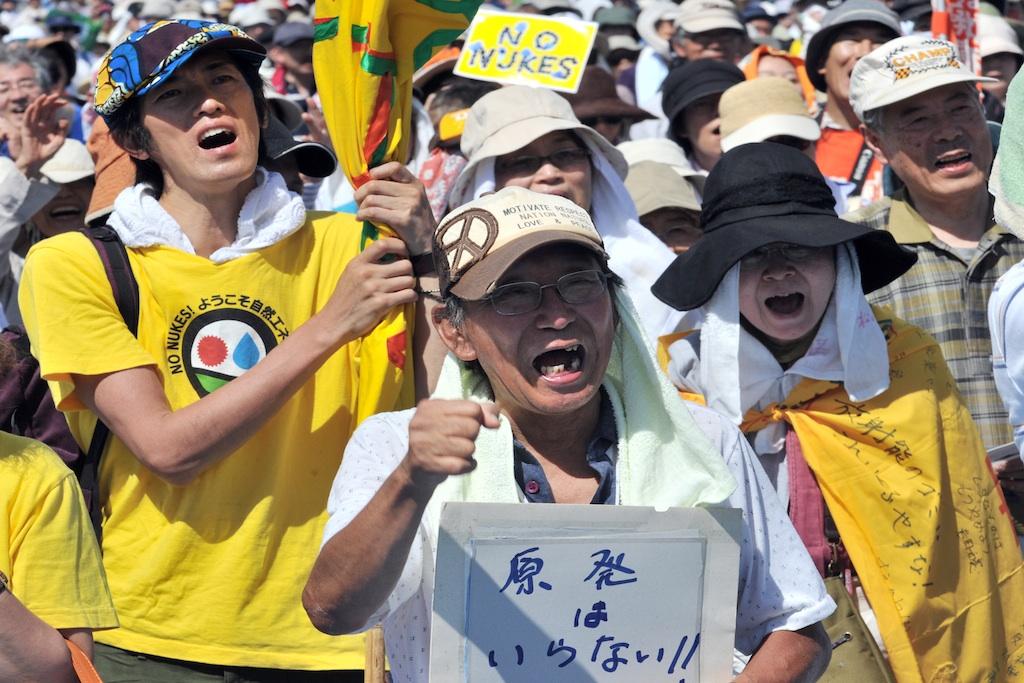Japan aims to be nuclear-free by 2040
People hold placards to protest against nuclear power plants in Tokyo on July 16, 2012. Tens of thousands of people rallied in Tokyo demanding an end to nuclear power, the latest in a series of anti-atomic gatherings following the tsunami-sparked disaster at Fukushima.
Japan announced today that it would stop using nuclear power completely within 30 years, a major turn-around from the country that once planned to generate more than half its electricity from atomic sources.
"We will use all possible political resources to realize the goal of having no nuclear plants operating by the end of the 2030s," a report by the government's energy and environmental committee states, according to the Wall Street Journal.
In practice, that will mean enforcing a maximum lifespan for nuclear reactors of 40 years, and banning the construction of new plants.
According to Bloomberg, the new energy policy – the government's first since the Fukushima disaster last year – is a response to the Japanese public's nervousness around nuclear reactors since one of them irradiated swathes of their country.
As GlobalPost reported, Japan has seen some of its largest anti-nuclear protests in decades following the accident.
More from GlobalPost: What happened to "no nukes" Japan?
Japan will attempt to swap nuclear for renewable energy: Reuters reports that the government hopes to triple renewables' share to 30 percent of the country's energy mix.
Achieving that goal will require hundreds of billions of dollars' investment in clean energy technology, according to Bloomberg. The government also admits that it will have to use more coal, oil and gas in the meantime, meaning that Japan will likely fall short of targets to reduce its carbon emissions.
Business leaders have also expressed concern for the impact the strategy will have on Japanese industry, which could find itself forced to pay higher prices for electricity. Hiromasa Yonekura, the chairman of the Japan Business Federation, called the plan "counter to a growth strategy," according to Reuters.
There may, however, be room for maneuver: the New York Times says ministers indicated that the plans were "loose guidelines open to revision and discussion," and could be overruled by Japan's nuclear authorities.
Nor has Tokyo decided what to do about the five nuclear reactors that will be less than 40 years old by the end of the 2030s, the Times reports – "leaving open the possibility that some reactors will remain running into the 2040s and beyond."
More from GlobalPost: Japan caves to economic pressure, restarts reactors
Our coverage reaches millions each week, but only a small fraction of listeners contribute to sustain our program. We still need 224 more people to donate $100 or $10/monthly to unlock our $67,000 match. Will you help us get there today?
